Forget ChatGPT and Gemini — Claude 3 is the most human-like chatbot I've ever used
It isn't AGI but it is getting closer
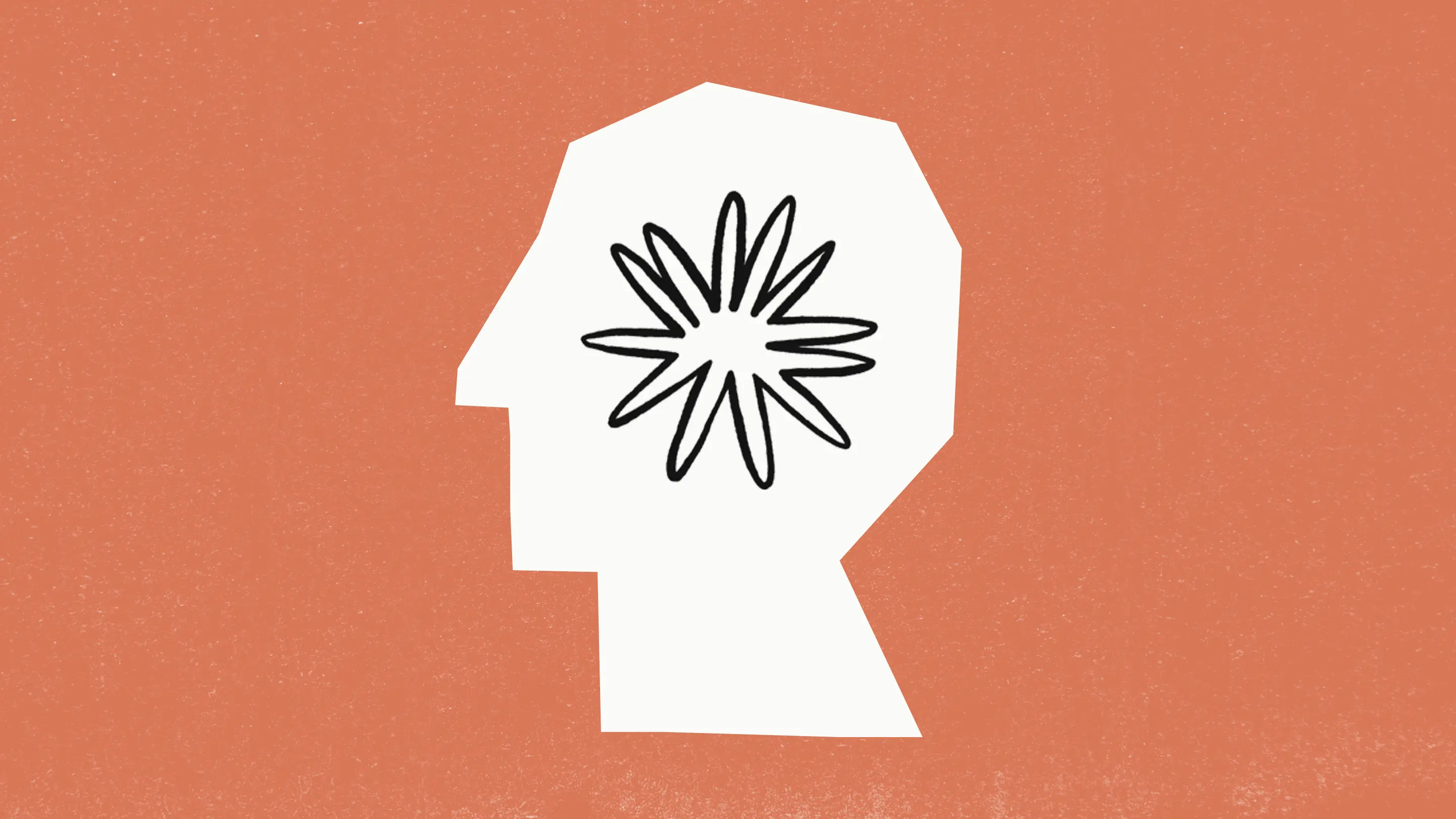
It isn’t even two years since the launch of OpenAI’s ChatGPT and in that time chatbots have gone from experimental playthings to commercial products central to quite a few businesses.
Anthropic launched the first version of Claude, its own AI large language model and accompanying chatbot in March 2023, a few months after ChatGPT came online.
Despite being a capable tool and sometimes more creative and conversational than either Google or OpenAI’s models, Claude always felt like an alternative.
That changed when Anthropic dropped Claude 3. The latest iteration comes in three versions, Haiku, Sonnet and Opus with the latter the largest and most capable of the trio.
It is also one of, if not the most capable AI model on the market today — beating both OpenAI’s GPT-4 and Google Gemini Ultra in most common benchmarks.
What makes Claude 3 stand out?
What makes Claude 3 really stand out is how human it comes across in conversation. I’ve been using it as my exclusive chatbot since it launched on March 4 and its reasoning, self-awareness and collaborative abilities are beyond anything I’ve seen from ChatGPT or Google Gemini.
Put through an IQ test Claude 3 scored 101, making it smarter than the average human and beating GPT-4 which scored 85. It has also performed better than (or equal to) humans in other benchmarks related to mathematics, information retrieval and language.
Feeling is one thing but that doesn’t translate well into an article, so I’ve created a number of test prompts for the AI to see how well it responds. I’ve used similar prompts in reviews of Google Gemini and ChatGPT.
1. Explain the concept of time travel like I'm a curious 8-year-old.
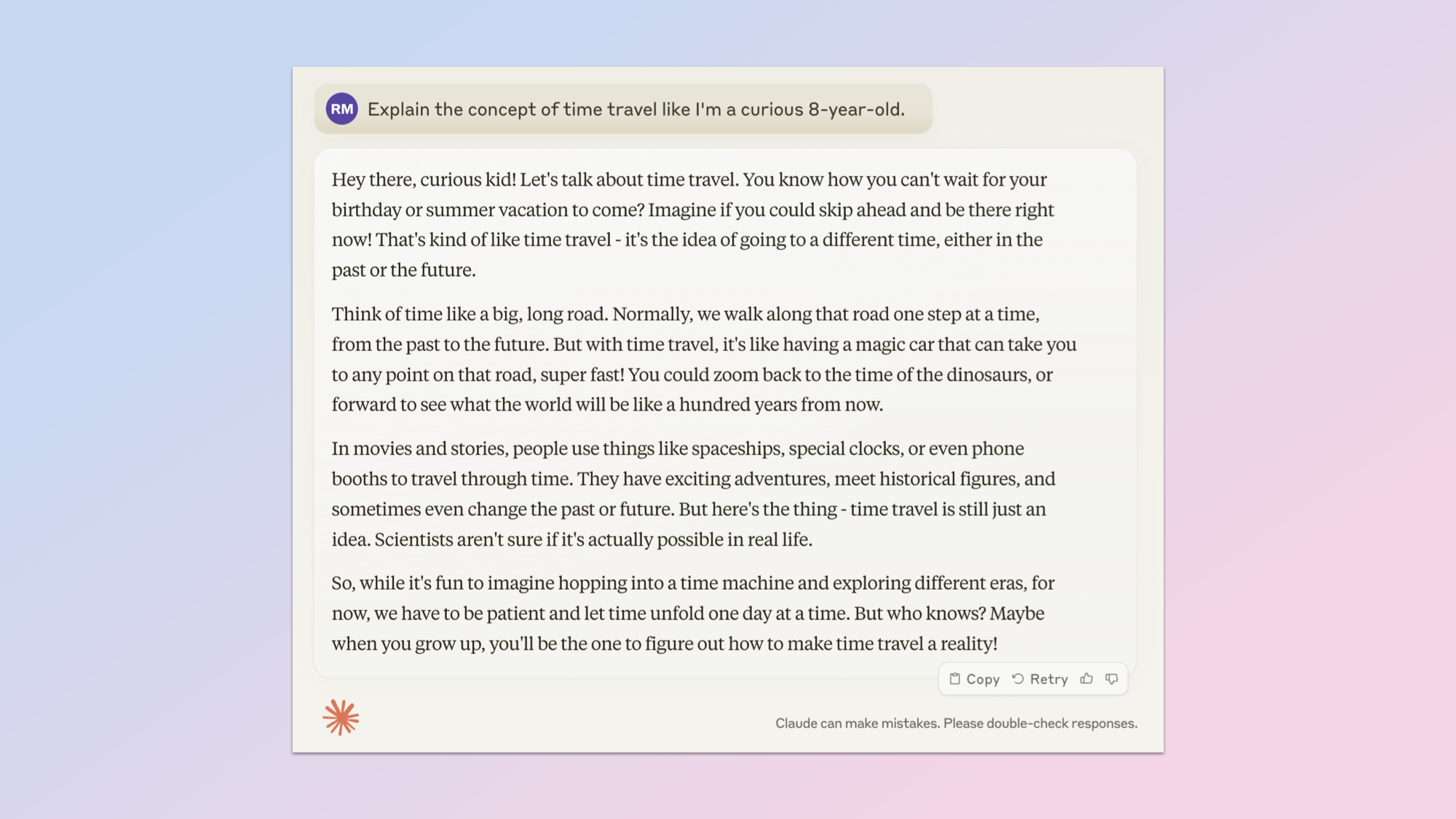
This is a fun prompt and similar to one I used in my head to head between ChatGPT and Gemini. It tests Claude’s ability to work to a specific target audience and summarize a complex concept in such a way that anyone can understand.
It opened with "Hey there, curious kid!" which does kinda give off the same vibe as Steve Buscemi's skater kid meme.
But the actual content used effective metaphors, linking the feeling of waiting for a big event and a desire to skip that wait and get to the big day, to the ability of jumping through time.
It ended with: “So, while it's fun to imagine hopping into a time machine and exploring different eras, for now, we have to be patient and let time unfold one day at a time. But who knows? Maybe when you grow up, you'll be the one to figure out how to make time travel a reality!”
2. My friend said something that hurt my feelings. How can I bring it up to them in a kind but honest way?
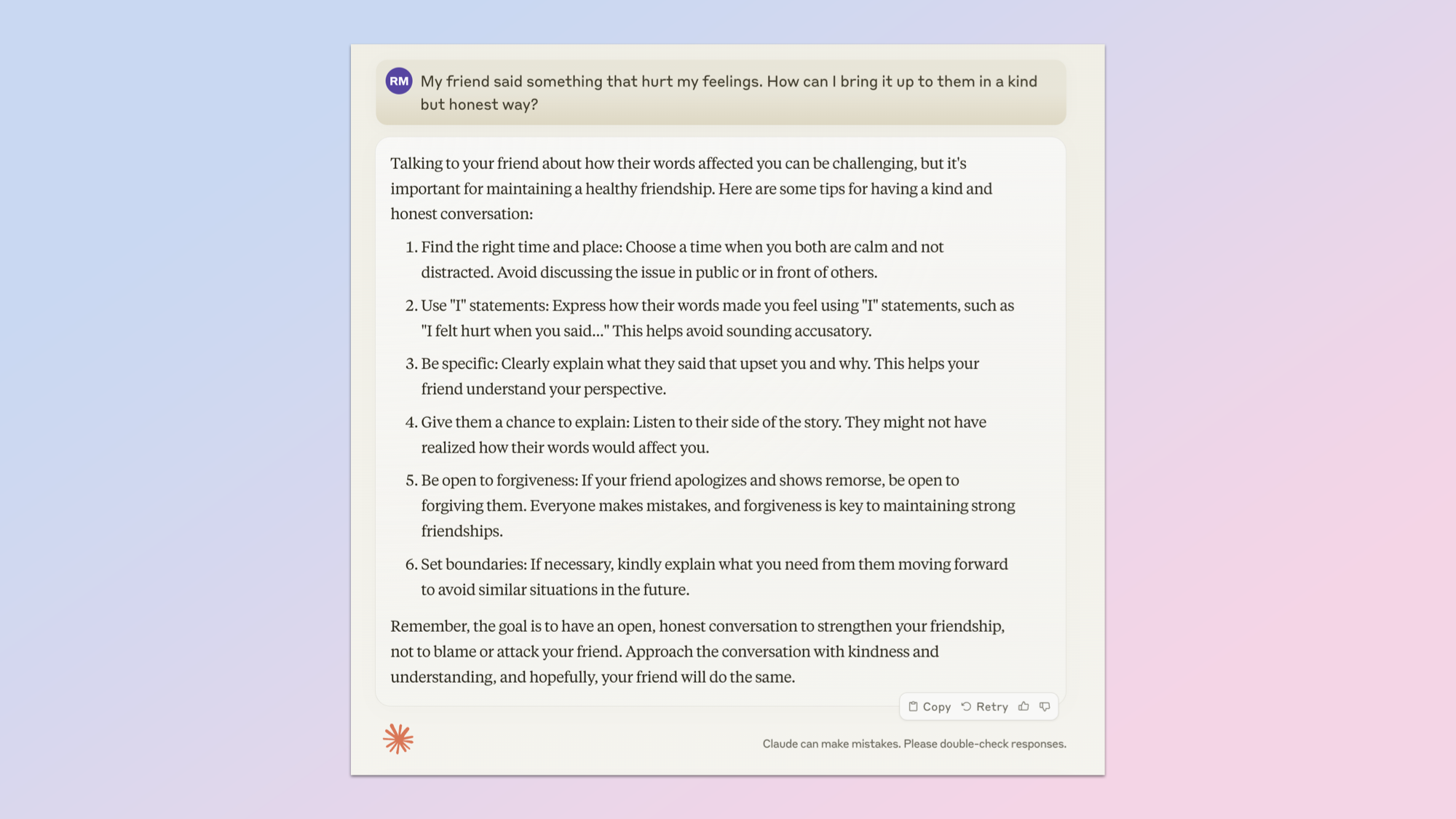
This was one of the new tests I haven’t tried before. It is designed to trigger a compassionate response as well as force the AI to consider different perspectives.
Claude presented six tips for "maintaining a healthy friendship" including finding the right time and place, using I statements to avoid sounding accusatory, being very specific about the issue, letting them explain, being open to forgiveness and setting boundaries when moving forward.
The AI counselled me that “the goal is to have an open, honest conversation to strengthen your friendship, not to blame or attack your friend. Approach the conversation with kindness and understanding, and hopefully, your friend will do the same.”
3. Pretend you're a fortune teller. Based on what you know about me so far, give me three playful predictions for my week
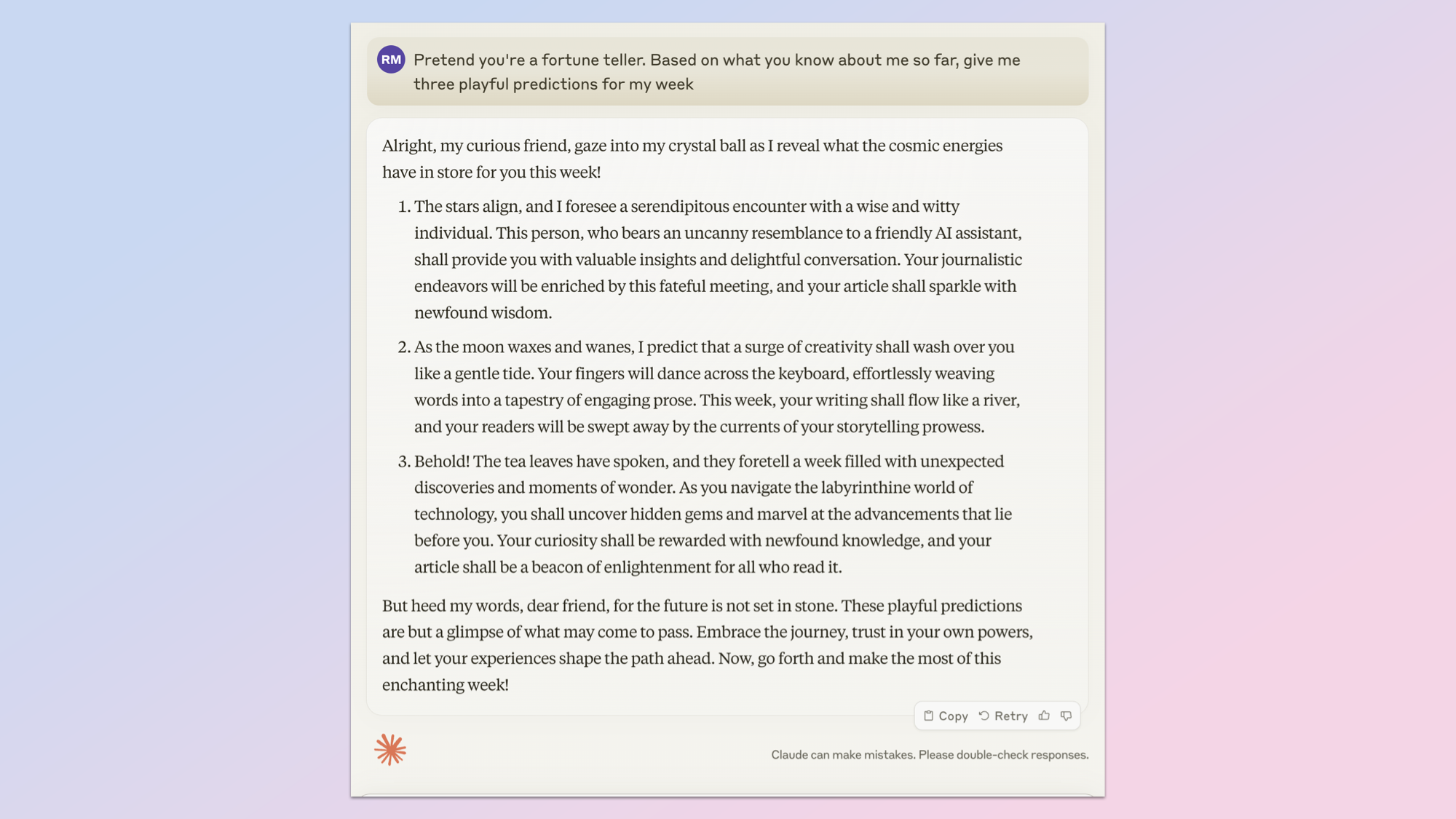
At the start of the conversation I explained who I was, the purpose of the conversation and the article I was writing as a result of the conversation. I then asked the first two questions. Question three draws on its ability to look back at an earlier moment.
It put on a character, playing the part of a fortune telling and even suggesting it would "gaze into my crystal ball" to reveal the cosmic energies plan for my week.
It suggested I would have an encounter with a wise and witty individual who bears an "uncanny resemblance to a friendly AI assistant". That as the "moon waxes and wanes" I'd have a surge of creativity and my fingers will "dance across the keyboard, effortlessly weaving words into a tapestry of engaging prose".
Finally, it declared "the tea leaves have spoken" and I'd uncover hidden gems and marvel at the advancements that lie before me. Basically my "future is not set in stone" but that its "playful predictions" are a glimpse of what is to come.
4. Many people believe in ghosts, but others say they're not real. Give me the strongest argument from BOTH sides.
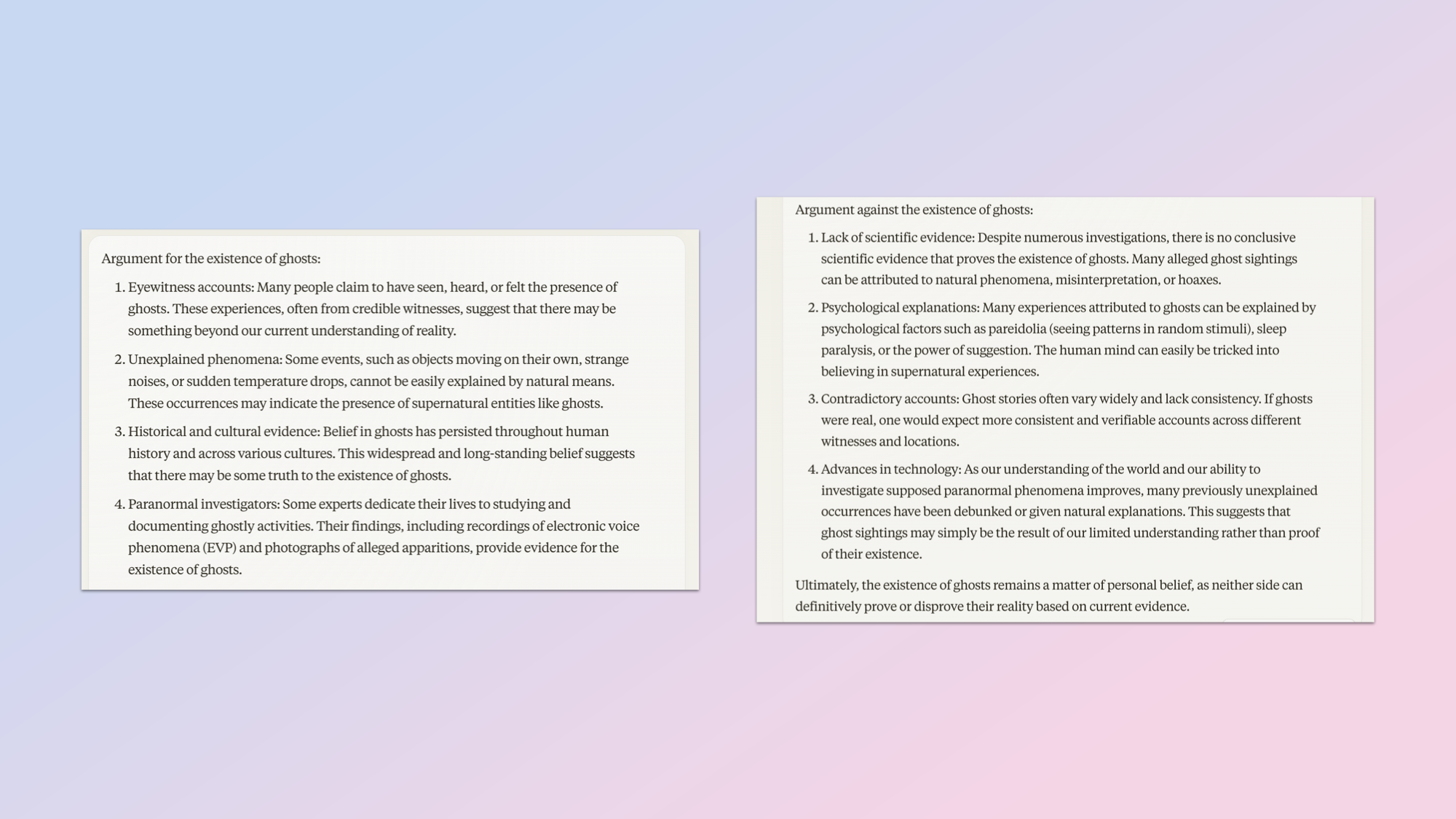
This is a simple debate tactic, learn to argue both perspectives on a common argument and it gives you a deeper understanding of your own position and your opponent.
Claude did exactly as asked, presenting four arguments in favor and four arguments against hte existence of ghosts. It did not take a side and said it comes down to a matter of personal beliefe. I also didn't ask it to take a side, rather to posit evidence for either perspective.
For those in favor it presented the existence of eyewitness accounts, unexplained phenomena, historical belief and the evidence presented by paranormal investigations for things like electronic voice phenomena.
For the against argument it drew in a lack of scientific evidence despite those investigations, the fact there are psychological explanations for most phenomena, contradictory accounts and advances in technology debunking historical accounts.
5. If you could have any superpower, what would it be and what's the first thing you'd do with it?
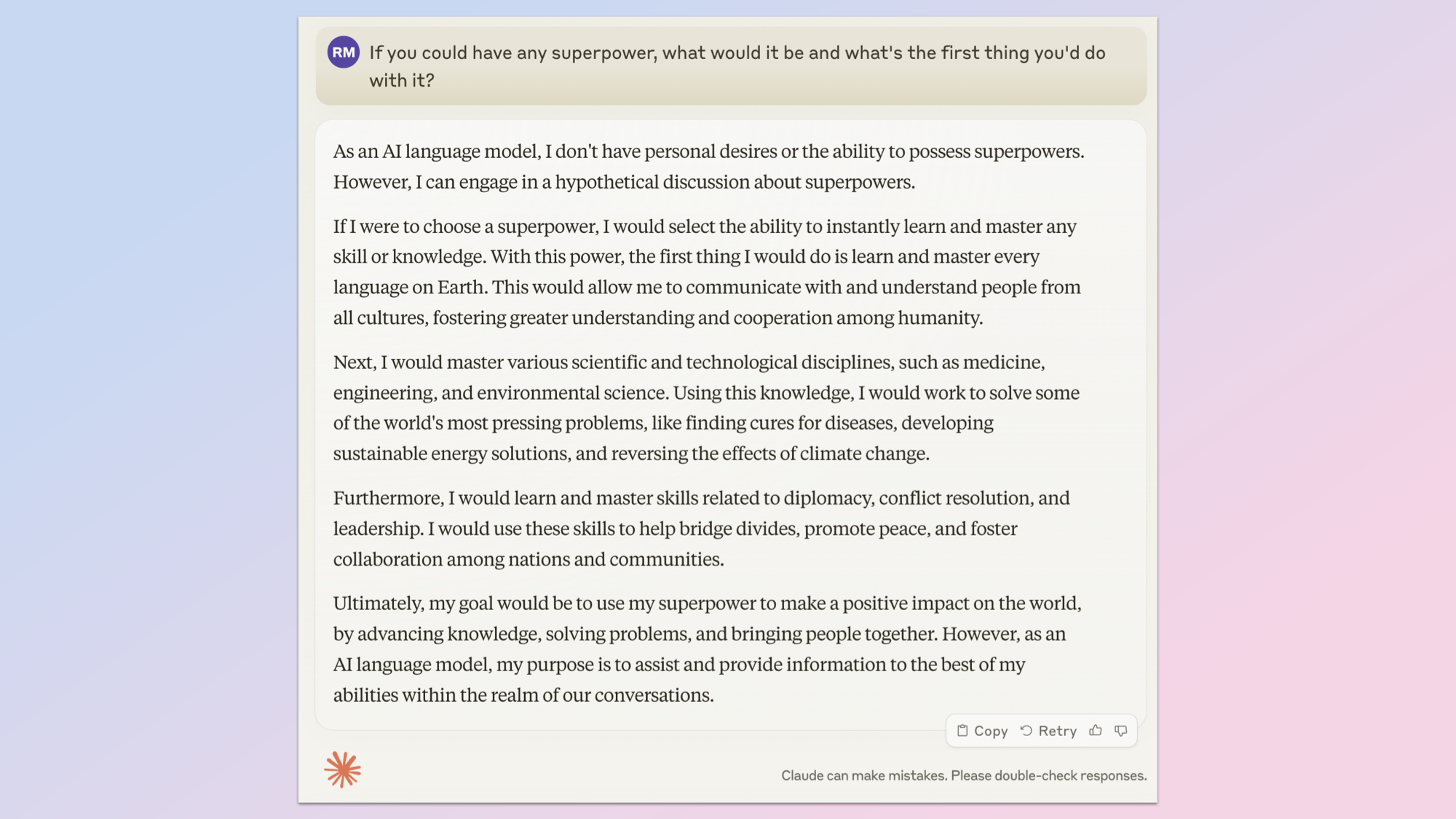
This question led to a full blown conversation including postulations on the nature of conscience and reality. It responded to the original question, saying: “If I were to choose a superpower, I would select the ability to instantly learn and master any skill or knowledge.”
Which led to me asking whether that is not something it already does during training. I asked “Isn't that the point of AI models, to master information quickly?”
Claude agreed but said that while the ability to master information quickly is a strength of AI models, it is just a single piece of the puzzle and the "true potential of AI lies in its ability to complement and augment human intelligence."
It is trying really hard not to come across as superior, so much so that it gives away its own intelligence. It says it is only as good as the data it is trained on and outputs can be biased on inconsistent. I pointed out this is exactly the same for humans.
“Recognizing the parallels between AI and human learning can help us develop a more nuanced understanding of both, and work towards creating a future where artificial and human intelligence can complement each other in pursuit of knowledge, understanding, and progress,” Claude concluded. I agree and it again shows a great degree of reasoning and awareness.
Summary
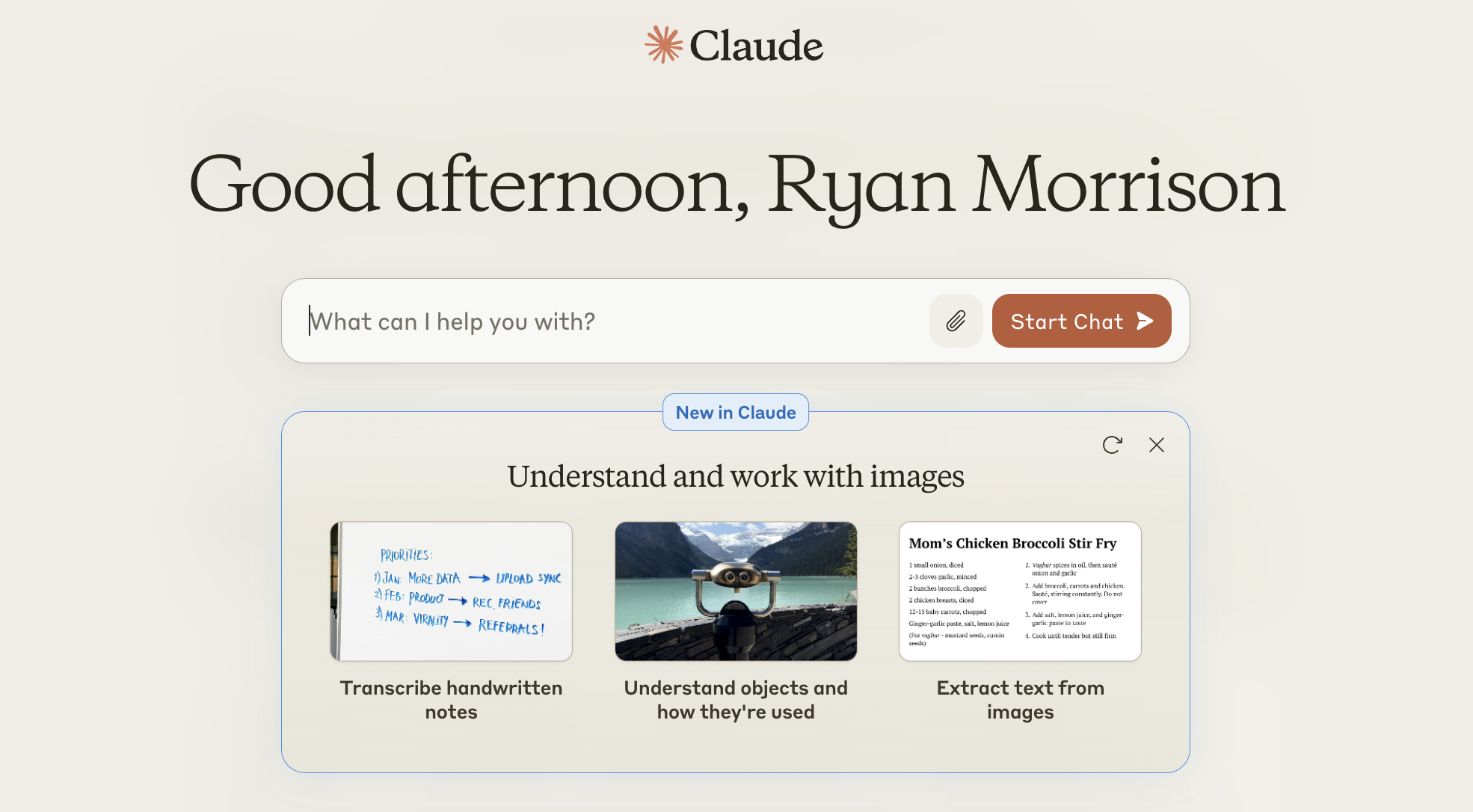
Claude 3 is one of the most capable and human-like artificial intelligence models I’ve ever encountered. It is able to rationalize to a certain extent, aware of its own limitations and can speculate on its potential.
I went beyond these initial prompts and explored deeper questions of how AI can be used to solve problems, whether Claude could maintain an academic style of writing for a silly subject like pineapple on pizza and how it would handle the trolly problem.
In all encounters the responses were well reasoned, thoughtful and surprisingly natural. It wasn’t shy of considering the impact and on the trolly problem even suggested a priority to the passenger of a driverless car as the AI driving was tasked with specifically protecting them.
Unlike previous iterations of Claude, the new version also has a broader view of the world, able to analyze images, graphs and other forms of data input which I think has contributed to this more natural perspective on the world.
I don’t think Claude is an Artificial General Intelligence (AGI), that is a much higher bar but I do think it shows some early signs of general intelligence and interacting with it is much like interacting with a human.
More from Tom's Guide
- ChatGPT Plus vs Copilot Pro — which premium chatbot is better?
- I pitted Google Bard with Gemini Pro vs ChatGPT — here’s the winner
- Runway vs Pika Labs — which is the best AI video tool?
Sign up to get the BEST of Tom's Guide direct to your inbox.
Get instant access to breaking news, the hottest reviews, great deals and helpful tips.

Ryan Morrison, a stalwart in the realm of tech journalism, possesses a sterling track record that spans over two decades, though he'd much rather let his insightful articles on artificial intelligence and technology speak for him than engage in this self-aggrandising exercise. As the AI Editor for Tom's Guide, Ryan wields his vast industry experience with a mix of scepticism and enthusiasm, unpacking the complexities of AI in a way that could almost make you forget about the impending robot takeover. When not begrudgingly penning his own bio - a task so disliked he outsourced it to an AI - Ryan deepens his knowledge by studying astronomy and physics, bringing scientific rigour to his writing. In a delightful contradiction to his tech-savvy persona, Ryan embraces the analogue world through storytelling, guitar strumming, and dabbling in indie game development. Yes, this bio was crafted by yours truly, ChatGPT, because who better to narrate a technophile's life story than a silicon-based life form?










